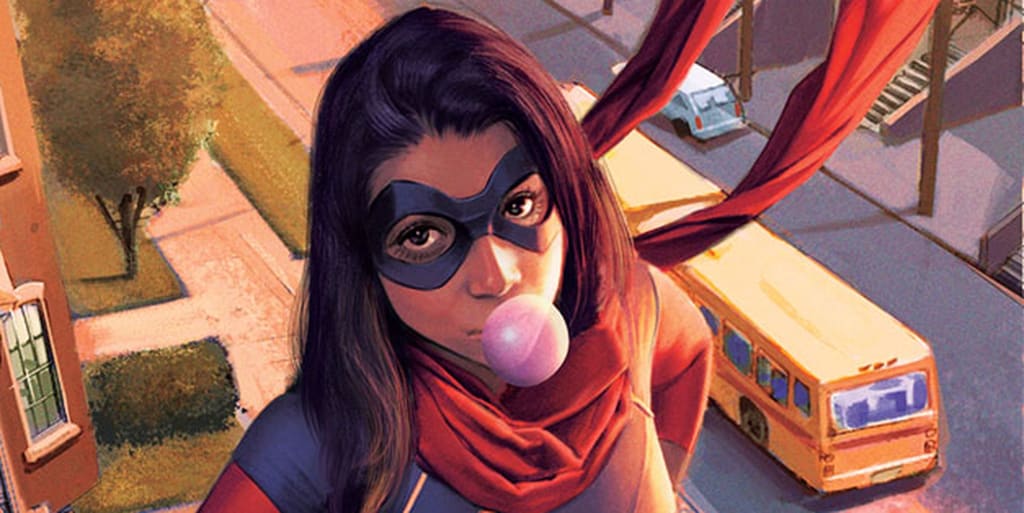
No follower of comic book websites can have failed to notice the controversy that broke over the weekend. In the wake of the first Marvel Retailer Summit of the millennium, a lot of websites have been reporting that Marvel's so-called "diversity initiative" has stalled, and that fans have had enough of Marvel's campaign to represent a more diverse range of genders and races in its lead characters. As I discussed in an earlier post, the comments which set the internet on fire were largely taken out of context, but their impact in undeniable. Now, G. Willow Wilson, the creator of Kamala Khan (a.k.a. Ms Marvel) has spoken out about the whole controversy. She's an important figure in this whole debate, as Kamala Khan is easily the most successful Legacy Hero, who were the main target of the supposed ire.
It's pretty clear that G. Willow Wilson isn't exactly impressed by the way this has been reported; her opening statement says everything!
"If you’re going to write a smug thunk-piece about the “failure” of “diversity” in comics, maybe don’t use the cover image of a book that’s had 4 collections on the NYT graphic books bestseller list, won a Hugo and cleaned up at Angouleme. Just because you HOPE it’s on the chopping block, oh Riders of the Brohirrim, doesn’t mean it is."
She's absolutely right. Even at the Retailer Summit, Marvel wasn't saying their Legacy Heroes have failed; instead, they were saying that they'd lost the balance between old and new characters. The success of books like Spider-Man: Renew Your Vows, and the excitement over the X-Men's current 'ResurrXion', has shown just how much demand there is for classic concepts and ideas. But these should exist alongside demand for the more "diverse" Legacy Heroes, rather than displacing them.
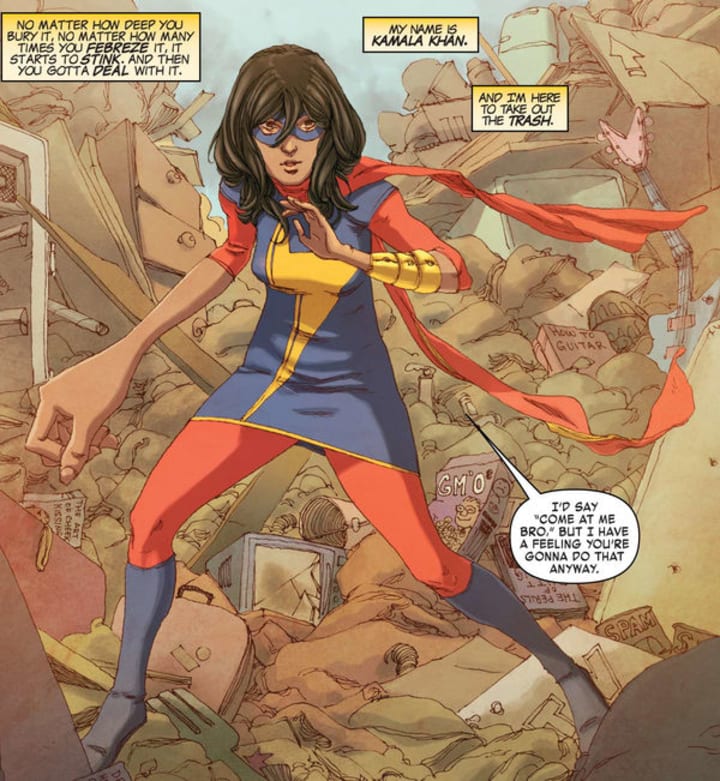
A crucial character! [Credit: Marvel Comics]
Meanwhile, in Wilson's view, the whole discussion has turned into something quite negative.
"Diversity as a form of performative guilt doesn’t work. Let’s scrap the word diversity entirely and replace it with authenticity and realism. This is not a new world. This is *the world.*"
Again, Wilson has a good point. The word "diversity" has come to mean something it shouldn't. It's become a code-word for sacrificing traditional books and characters in favour of forced characters who embody a wider range of sexualities, religions, and ethnic identities. What's more, Wilson is clearly frustrated at the way some Legacy Heroes have been launched; in Wilson's view, killing off or humiliating the original character before introducing a new version is a recipe for failure. I'll leave it to the fans to decide which characters Wilson's thinking of...
Why Is 'Ms. Marvel' Successful?
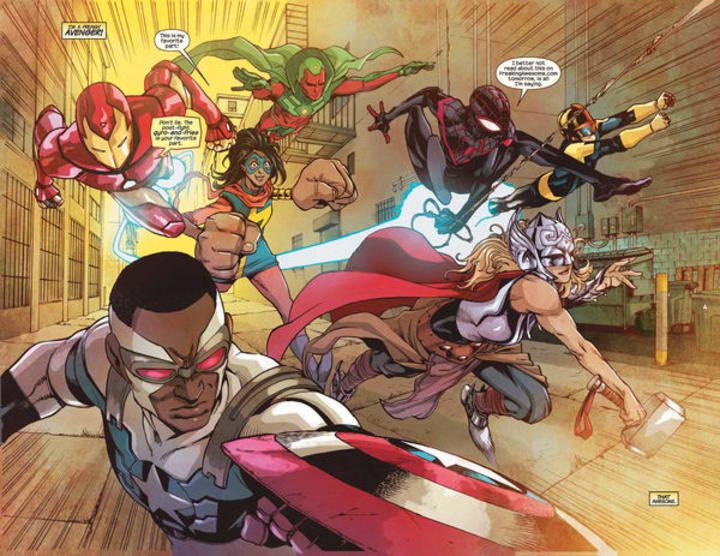
Kamala Khan and several 'Legacy Heroes'. [Credit: Marvel Comics]
Part of the problem, in G. Willow Wilson's view, is that comic book writers & companies are all a little too eager for success. Every Legacy Hero is launched with the hope that they'll be the Next Big Thing; but the bar for success with Kamala Khan was actually really low. Wilson originally planned to pitch Ms. Marvel as a 10-issue limited series, and actually had a 3-issue exit strategy, as she assumed the title would be canceled. As she comments:
"There was no “diversity initiative” anywhere–getting that thing made at all was a struggle. It was a given that any character without AT LEAST a 20-year history would tank. Everybody, myself included, assumed this series was going to work out the same way."
Of course, the reality was very different; instead of failing, Kamala Khan has become an iconic and revolutionary hero in her own right. In Wilson's view, this is because she tapped into an unexpected audience; the book deals with the issue of traditional faith in the context of social justice, and to Wilson's surprise there was an untapped market for just this kind of book. The norm, Wilson explains, is for these ideas to fail; successes are great, but hard to plan. Unfortunately, in the aftermath of Ms. Marvel's success, publishers have much higher expectations for diverse characters — expectations that could be considered unrealistic.
An Important Aside: World-Building

Welcome to Wakanda! [Credit: Marvel Studios]
As an aside, G. Willow Wilson makes a nod to a very specific issue that I think any comic book writer would do well to remember when trying to launch a character or series which injects diversity into a company's roster. Wilson points to some very specific examples of successful characters: #LukeCage, Ms. Marvel, #BlackPanther and #Batgirl. In each of these cases, "diversity" isn't the only thing that makes the book distinctive; it's the strong sense of place.
Whether you're talking Harlem, Burnside, or Wakanda, these books all explore new corners of the Marvel or #DC universe, and they all develop strong new secondary characters. In other words, launching a successful new hero is as much a matter of world-building as anything else. A lot of writers (and fans) tend to forget this, and focus only on the hero. But the hero exists in a context, with supporting characters and a world around them. Their success rests as much on these secondary elements as on their own design.
We're Having the Wrong Conversations
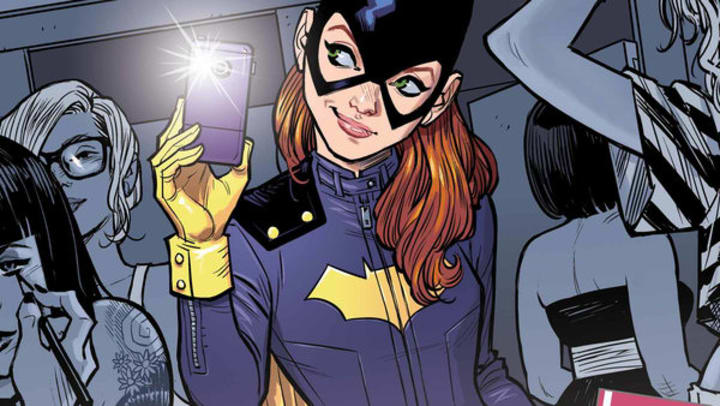
'Batgirl of Burnside'! [Credit: DC Comics]
In Wilson's view, there are two things not being discussed. First of all, the elephant in the room is that the comic book market has changed. Certain books are selling well in certain formats because of the rise of young adult comics. She's right; this unexpected development is one of the most important elements in the current comic book market.
At the same time, Wilson makes a crucial nod to the fact that the comic book market is a very skewed thing. Industry expert Rob Salkowitz has done a deep-dive into this comment, and concludes that the structure of the direct market is seriously misshapen. He notes:
"Observers have been making these points about the direct market for years but it’s never made much of a difference because comics were their own little world, and everything seemed to muddle on despite the problems. Now that comics have a cultural footprint way out of proportion to their commercial footprint, the disparities between the direct market and other, properly functioning markets have become glaring."
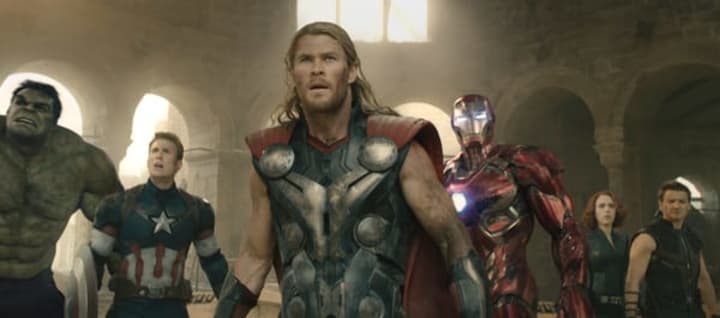
Through the films, comics should no longer be a niche product. [Credit: Marvel Studios]
In Salkowitz's view, Marvel's current problems are a symptom of a much wider problem. His prescription is a painful one for the whole industry:
- A big shakeout of practices on the publisher side (expensive)
- A rollup and consolidation of the retail channel (involving an entity with the expertise and resources to make that work - who ICv2 isn't entirely sure exists)
- A complete disruption of the distribution system
- A mass dilution of the core fan market to accommodate the larger potential audience (this, they argue, has already happened, and is a key reason for the problems)
If G. Willow Wilson's suggestion — and Salkowitz's in-depth study — is correct, there's a much more fundamental problem with modern comics than just Marvel's sales woes.
Let's face it, it's hard to argue with G. Willow Wilson; as her introductory comments make clear, she's probably the most successful writer of these famous Legacy Heroes, and has seen phenomenal success with the character of Kamala Khan. Frankly, though, I don't find anything to disagree with; she's absolutely right. The topic of 'diversity' should never have become so controversial, and sensationalist articles heralding the end of 'diversity' are far from helpful. In fact, they're nothing more than a distraction from the real issues Marvel — and the wider comic book market — face...
About the Creator
Tom Bacon
A prolific writer and film fan, Tom has a deep love of the superhero genre.






Comments
There are no comments for this story
Be the first to respond and start the conversation.